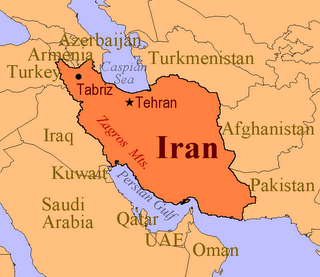Calculating the Risk of War in Iran by F. William Engdahl
January 29, 2006 | |
In the past weeks media reports have speculated that Washington is ‘thinking the unthinkable,’ namely, an aggressive, pre-emptive nuclear bombardment of Iran, by either the United States or Israel, to destroy or render useless the deep underground Iranian nuclear facilities. The possibility of war against Iran presents a geo-strategic and geopolitical problem of far more complexity than the bombing and occupation of Iraq. And Iraq has proven complicated enough for the United States. Below we try to identify some of the main motives of the main actors in the new drama and the outlook for possible war. The dramatis personae include the Bush Administration, most especially the Cheney-led neo-conservative hawks in control now of not only the Pentagon, but also the CIA, the UN Ambassadorship and a growing part of the State Department planning bureaucracy under Condi Rice. It includes Iran, under the new and outspoken President Mahmoud Ahmadinejad. It includes Putin’s Russia, a nuclear-armed veto member of the UN Security Council. It includes a nuclear-armed Israel, whose acting Prime Minister, Ehud Olmert, recently declared that Israel could ‘under no circumstances’ allow Iranian development of nuclear weapons ‘that can threaten our existence.’ It includes the EU, especially Security Council Permanent Member, France and the weakening President Chirac. It includes China, whose dependence on Iranian oil and potentially natural gas is large. Each of these actors has differing agendas and different goals, making the issue of Iran one of the most complex in recent international politics. What’s going on here? Is a nuclear war, with all that implies for the global financial and political stability, imminent? What are the possible and even probable outcomes? The basic facts First the basic facts as can be verified. The latest act by Iran’s President, Ahmadinejad, announcing the resumption of suspended work on completing a nuclear fuel enrichment facility along with two other facilities at Natanz, sounded louder alarm bells outside Iran than his inflammatory anti-Israel rhetoric earlier, understandably so. Mohamed El Baradei, Nobel Peace prize winning head of the International Atomic Energy Agency, the UN body, has said he is not sure if that act implies a nuclear weapons program, or whether Iran is merely determined not to be dependent on outside powers for its own civilian nuclear fuel cycle. But, he added, the evidence for it is stronger than that against Saddam Hussein, a rather strong statement by the usually cautious El Baradei. The result of the resumption of research at Natanz appears to have jelled for the first time, a coalition between USA and the EU, including Germany and France, with China and even Russia, now joining in urging Iran to desist. Last August President George Bush announced, in regard to Iran’s announced plans to resume enrichment regardless of international opinion, that ‘all options are on the table.’ That implied in context a nuclear strike on Iranian nuclear sites. That statement led to a sharp acceleration of EU diplomatic efforts, led by Britain, Germany and France, the so-called EU-3, to avoid a war. ... more | |
 Total Madness: General Selected Writings by Various Authors.
Total Madness: General Selected Writings by Various Authors.






